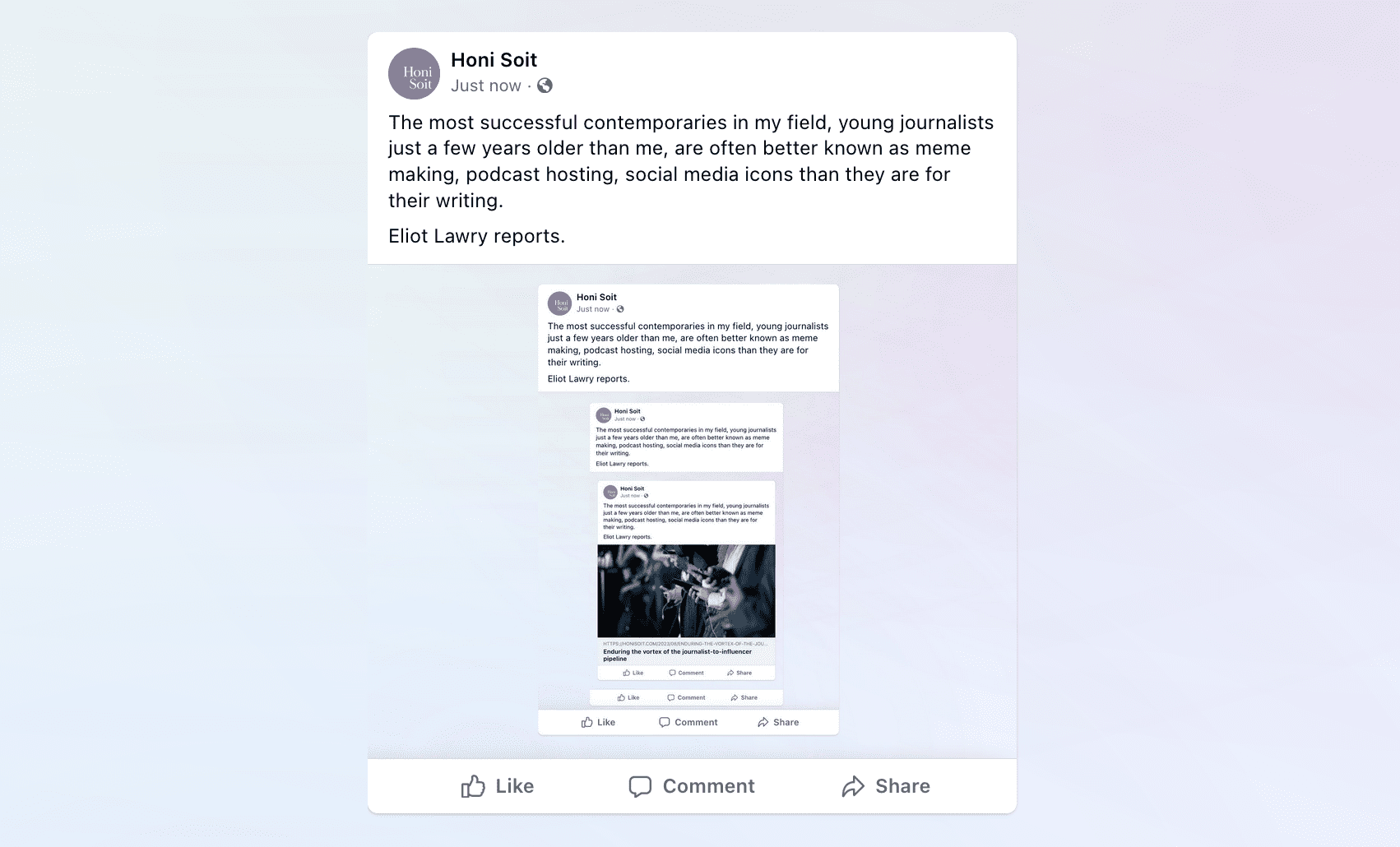I redownloaded TikTok last week. This scene is pretty common. I put on a cute outfit and open the app to capture my wittiest takes on the latest cultural phenomena, only to delete it after a quick spiral. As a Masters student studying journalism at USyd, we are encouraged, nay, willed to weaponise our personal social media profiles for future success. I don’t love it, but the fact is: it’s not entirely stupid advice.
A quick look at national news consumption habits will show you that Aussies are moving more and more towards social media. A lot of the journalistic skills of times gone by are being mapped into a new medium to varying degrees of success. This I can accept. I get it. What I struggle with is the pressure to arrive at cadetship interviews as a fully formed online celebrity. I’ve always wanted to be a writer and generations before me got their foot in the door by being able to, well, write.
Yet the most successful contemporaries in my field, young journalists just a few years older than me, are often better known as meme making, podcast hosting, social media icons than they are for their writing. There are a few lucky ones like Jia Tolentino — the New Yorker writer who built a career via an effortlessly glamorous online presence only to retreat into virtual mystery once the quality of her words had enough recognition. But Tolentino is the exception, not the rule.
This is so much the norm that it is baked into the curriculum for media and communications students. We are taught that to guarantee job security we must be readily-recognisable and chronically online, ready to comment on anything that has captured the cultural zeitgeist and drum up engagement in the process. To my teachers’ credit, when the AI overlords finally take all of the last reporting jobs out of Australian newsrooms, the remaining writers will be those with a recognisable and uniquely human voice. Yet I remain struck by a couple of ethical dilemmas. Namely, can I write without crafting a caricature of myself online? Increasingly the answer is no.
When I was in high school I did a week of work experience at The Age in Melbourne. Bushy-tailed and bright-eyed, I excitedly boasted to the adults around me that one day I would be a writer too. The consistent response to my enthusiasm was that journalism is a dead-end job. “There’s no work left,” I would hear, “the whole industry is spineless and corrupt anyway.” A grim outlook, yes, but not entirely incorrect. In 2012, Australian media was entering a dark age. A proliferation of digital technology had led to a demand for more news content, and people wanted it faster, and for free. Almost all traditional mediums took a hit, with independent print sources suffering the most as they struggled to adapt to pace with the rest of the world. By the early 2010s, most of these publishers had shut down and quickly the two titans of print, News Corp and Fairfax, accounted for 86% of all newspaper sales.
In 2023 these challenges persevere, and as such, the job market continues to shrink. Those of us optimistic enough to believe we can and will be contributors and shapers to the public record have little choice. We can no longer simply join the ranks of a media brand to reach the Australian and global public. We must already be a brand in our own right. And that is something that I haven’t quite hacked.
With all the worry and angst that I have about what this means for me, and for the priorities of our future journalists I also know that I am totally complicit. I love that my favourite writers are also stylish and current and insightful and vulnerable and funny! I can complain but the dream to “Tolentino” my personality to access career opportunities remains very much alive. So if you see me shaking my ass on TikTok, chuck us a like — in doing so you are preserving the future of Australian journalism.





